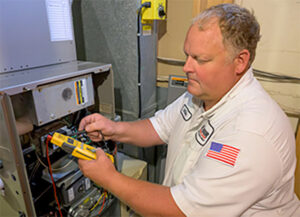How Long Do HVAC Systems Last In South Carolina?
Average Lifespan
The average lifespan of an HVAC system in South Carolina is typically between 10 to 15 years. However, several factors can affect this range:
- Type of System: Heat pumps, central air conditioning units, and furnaces all have varying lifespans.
- Usage Patterns: Intense seasonal use during hot summers and cold winters can shorten a system’s life.
- Maintenance: Regular professional maintenance can significantly extend your HVAC’s operational life.
- Installation Quality: Proper installation by certified professionals is crucial for ensuring the unit functions well for its full potential lifespan.
Factors Affecting Lifespan
Several specific factors that can impact the longevity of your HVAC system in South Carolina include:
- Climate Conditions: The hot and humid climate can cause HVAC systems to work harder, which may shorten their lifespan.
- Air Quality and Filtration: Good air filtration systems can reduce wear and tear by preventing dust and other particulates from entering the unit.
- Quality of the Unit: Higher quality units that are well-maintained tend to last longer than lower quality models that receive little to no maintenance.
Enhancing Your HVAC’s Lifespan
At One Hour Magic, we stress the importance of regular maintenance to extend the life of your HVAC system. This includes:
- Routine Inspections: Checking for issues before they become major problems.
- Filter Changes: Regularly changing filters to improve efficiency and protect internal mechanisms.
- Seasonal Servicing: Preparing your unit for high-demand seasons to ensure it runs smoothly.
Upgrade Recommendations
Consider upgrading your system if it’s frequently breaking down or if newer, more efficient models could decrease your energy costs. Upgrades can also enhance the overall home environment and increase property value.
Why Choose One Hour Magic for HVAC Replacement?
Choosing One Hour Magic for your HVAC replacement needs means trusting a team that offers:
- Expert Installation: Our certified professionals ensure your new system is installed efficiently and correctly.
- High-Quality Equipment: We use only the best products, which means reliable performance and durability.
- Comprehensive Support: From initial consultation to post-installation service, we provide complete support to keep your system in top condition.
- Cost-Effective Solutions: We offer competitive pricing and cost-effective models that save you money in the long run.
HVAC systems in South Carolina face unique challenges due to the climate but following best maintenance practices can help maximize their lifespan. At One Hour Magic, we’re here to provide expert service and advice on keeping your system running efficiently year-round. Contact us for more detailed information or to schedule a maintenance check-up.
For homeowners in South Carolina, being proactive about HVAC maintenance and understanding the factors that affect system longevity can save money and inconvenience over time. Trust One Hour Magic to help extend the life of your HVAC system with expert repairs and maintenance services.
FAQs – HVAC System Lifespan
What is the average lifespan of an HVAC system in South Carolina?
Most HVAC systems last between 10 to 15 years in South Carolina, depending on the system type, usage patterns, and regular maintenance.
How can I extend the life of my HVAC system?
Regular maintenance, including routine inspections, changing filters, and preparing your system for high-demand seasons, can significantly extend its lifespan.
Does the South Carolina climate affect HVAC longevity?
Yes, the hot and humid climate in South Carolina can cause HVAC systems to work harder, which may shorten their lifespan if not properly maintained.
Are there any signs that my HVAC system may need to be replaced soon?
Indications that replacement may be necessary include frequent breakdowns, increasing energy bills, and reduced efficiency, even after regular servicing.
What should I consider when deciding to replace my HVAC unit?
Consider factors such as the age of the unit, current operating efficiency, potential energy savings with newer models, and the overall cost of new installations versus ongoing repairs.